 |
| AI and Writing Detection - Justin Gluska, October 2024 |
Next in the Art of Adaptation Series!
Embracing AI: A New Chapter for Fantasy Authors
In the enchanting realm of fantasy literature, where dragons soar and magic zings through the air, we find ourselves on the brink of a transformative wave—the rise of artificial intelligence. As we dive into this brave (or frightening) new world, I want to reflect on how AI might shape the landscape for fantasy authors and, in turn, the stories we cherish.
How will we all adapt?
 |
| 1889 novel where AI takes over the world. |
Writing in a World of AI
For many authors, writing is a deep, personal process, rich in emotion and intricately woven with their unique voice. AI presents an intriguing proposition here. With tools that can analyze narrative structures, suggest plot twists, or even help in world-building, could these innovations enhance the creative process? Some authors may find that AI serves as a brainstorming partner, helping to overcome writer's block or providing endless possibilities to consider.
Can blending human creativity with AI capabilities result in more intricate and layered stories?
If so, the concern remains: will the essence of storytelling be lost?
The distinctive nuances of characters crafted from personal experiences, the way an author captures the intricacies of human emotions, or the intimate connection formed through relatable dilemmas might get overshadowed if automated systems take the wheel. Still, the heart of fantasy has always been its capacity to transport readers to new realms—perhaps AI can assist authors in doing just that, allowing them more freedom to focus on the emotional depth of their characters.
 |
| 1968 film inspired by Arthur C Clarke |
Marketing Magic in the Digital Age
What about marketing, you ask?
As the publishing industry continues to evolve, so too will the strategies authors employ to connect with their audiences. Marketing in the age of AI could redefine how fantasy authors approach their readers. Personalized marketing campaigns powered by AI analytics may better target specific demographics, allowing authors to reach niche audiences who are eager for their tales.
Imagine a world where illustrations, interactive maps, and additional digital content can be effortlessly integrated into a book’s marketing strategy. By leveraging AI, authors could create an immersive experience that complements their storytelling, enticing readers to dive into the world they've crafted even before turning the first page.
But what does this mean for authenticity? Will the charm of grassroots marketing—intimate book signings and personal interactions with fans—be sacrificed for distant algorithms? Navigating this slope will require a fine balance between innovation and the warmth that the community of readers and writers cherish.
A Changing Publishing Industry
 |
| A 1968 novel made into Blade Runner in 1982 by Ridley Scott |
The publishing industry itself stands on the precipice of transformation as AI tools become more prevalent. From manuscript evaluations to editing, the potential for automating certain tasks could streamline the process. Publishers may gain the ability to sift through pitches more thoroughly, identifying hidden gems that previously might not have received any attention.
Nonetheless, this shift raises important questions. If AI tools become standardized, will all fantasy stories begin to resemble one another, lacking the quirks and spark that make each narrative unique? Or could this be an opening for more adventurous, experimental works, as the time and barriers to entry are reduced for storytellers?
The Human Touch
At the end of the day, the most significant question remains: what does this mean for our experience as readers? Will the magic of reading mature into something more profound and immersive, or could it lose its heartfelt touch in the quest for efficiency? As avid fantasy lovers, we must be vigilant.
 |
| Asimov's SF short stories 1940 - 1950 Proyas 2004 film with Will Smith |
Adapt or Perish?
In 1968, a French literary critic and theorist named Roland Barthes wrote an essay called The Death of the Author. His thesis was that “The birth of the reader must be at the cost of the death of the author”.
One way to understand this is to say that every text is eternally written here and now. But every time it is read, it is rewritten by the reader, and given a different meaning depending on the reader's mood, knowledge and perspective. In this way, the author (or artist) must step aside for the art to stand on its own and create new meaning.
Essentially, the author dies so the reader may be born.
As AGI evolves, are authors to face a new kind of death, or was Barthes seeing sixty years into the future?
Conclsions
As we venture forward into the uncharted territory of AI, can we celebrate the fusion of creativity and technology, while holding on to the essence of what makes fantasy fiction so wonderfully captivating?
After all, the story is still ours to tell—wrought from the tapestry of dreams, imagination, and the undeniable human spirit. Isn't it?
Do you think AI will change the way fantasy authors create? I’d love to hear your thoughts and experiences in the comments below!
Disclaimer
If you've read all the way to the end, my AI buddy and I thank you.
That's right, I actually didn't write this post.
To exemplify the ideas here, I took 2 minutes to set up an AI blog platform on Grammarly with ideas, tone and keywords to explore. I pressed GO, and two seconds - one, two - later, this article appeared.
 |
| 2009 Novel with the quantum sentient “being” JARROD. |
I edited it a little, changing a word here and there, and adding different punctuation, but it's not really me, my research (which I would have spent 6 hours minimum doing, not 2 minutes) or my voice.
Except for one heading and two paragraphs that follow it (and this disclaimer).
Can you tell which is me in the sea of AI (gathered and compiled in 2 seconds)? I'd love to hear your guess in the comments.
xxKim
* * *
 About Kim Falconer
About Kim Falconer
Kim Falconer, also writing as AK Wilder, has released Crown of Bones, a YA Epic Fantasy with Curse of Shadows as book 2 in the series.
Currently, she is ready with the third book, planned to be out in 2025. TBA
Kim can be found on AKWilder.com, Twitter, Facebook, Instagram and KimFalconer.com.
Throw the bones on the AKWilder.com site.. See you there!
Read Blood and Water, a PNR alt history that will leave you questioning every natural disaster ever endured.
“There is no doubt fiction makes a better job of the truth.”
― Doris May Lessing, Under My Skin: Volume One of My Autobiography, to 1949




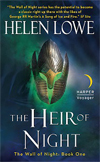
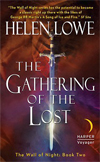
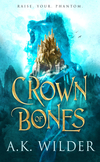
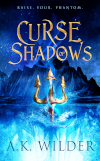
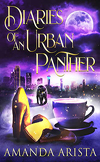
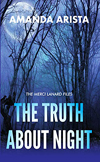

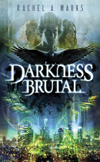
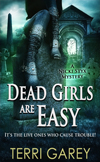
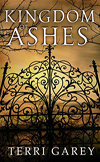
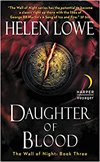
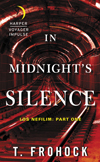
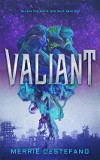
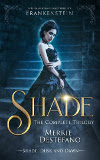

No comments:
Post a Comment